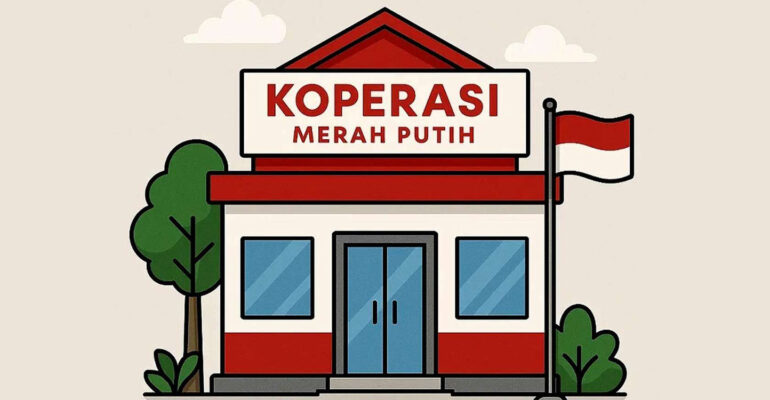Merah Putih Cooperative Must Become a People’s Movement, IPB University Academics Require Three Implementation Strategies

The Red and White Cooperative (KMP) program, set to be launched on July 12, is deemed to have insufficient time for public awareness. Prof Lukman M Baga, a distinguished professor at the Faculty of Economics and Management (FEM) at IPB University, stated that this has caused concern among the public.
“Most of the public have not fully understood this new policy. Yet they will be the primary implementers of the program,” he explained.
He noted that the policy is directive in nature with minimal public awareness. Implementation could also raise issues related to transparency and accountability.
“Funds of 3-5 billion per village will be allocated. Many are enthusiastic about becoming managers, but when they realize this is a soft loan, not a grant, many begin to reconsider,” he said.
Concerns also arise from village heads who, by virtue of their office, will become chairpersons of the KMP supervisory board in their areas. Prof Lukman noted that if the implementation of the KMP program faces issues, this will impact their performance evaluations, especially if there is a job rotation to areas with problematic KMP programs.
Prof Lukman also emphasized the importance of policy synchronization across ministries. “The Ministry of Cooperatives is the leading sector, but its implementation also intersects with trade, industry, agriculture, and other sectors. We must ensure that one policy does not undermine another,” he urged.
Some academics and local government officials are pessimistic about the effectiveness of the KMP program. These concerns are understandable given the lack of optimal coordination among institutions.
However, from Prof Lukman’s perspective as a cooperative academic, there are two approaches to cooperative management: bottom-up and top-down.
“Historically, cooperatives emerged from community initiatives to address livelihood challenges through collaboration. However, in Indonesia, the bottom-up approach is difficult to implement due to community apathy and negative perceptions of cooperatives,” he explained.
Nevertheless, he commends President Prabowo’s initiative to promote the cooperative movement as a form of people-centered economic development. He reiterates the spirit of Bung Hatta, who outlined cooperatives as the foundation of the economy in the explanation of Article 33 of the 1945 Constitution, viewing cooperatives not merely as business entities but as tools for the people’s economic movement.
According to him, there are three key strategies in implementing the Red and White Cooperative (KMP). First, upgrading human resources (HR). Prof Lukman stated that training and certification for cooperative managers must be a priority to ensure they have adequate competencies.
“Within a few months, managers must pass certification; if not, they must be replaced,” he emphasized.
Second, cross-sector collaboration. The KMP program must become a symbol of national collaboration involving industry, government, universities, and the community. He cited IPB University as an example, which can mentor all KMPs in Bogor Regency through technological innovation and entrepreneurship training.
“Industry should not source raw materials from abroad if they can be supplied by local cooperatives. Higher education institutions must also mentor KMPs in their respective regions,” he said.
Third, dynamic monitoring. He suggested implementing a monthly monitoring and evaluation mechanism, rather than an annual one, to track cooperative development and anticipate issues early on.
“If evaluations are conducted only once a year, it’s too late. With dynamic monitoring, anomalies can be detected earlier,” he said.
Finally, he emphasized the importance of collaboration to ensure that KMP is not merely a business program but a sustainable people-centered economic movement that brings shared prosperity. (AS) (IAAS/ASY)



